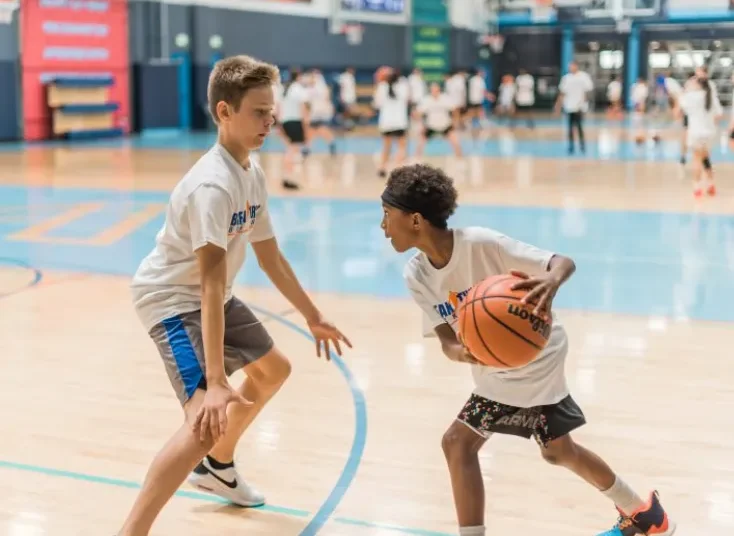Enrolling your child in a basketball summer camp can be one of the most rewarding decisions for their athletic and personal development. The right camp not only improves technical skills like shooting, dribbling, and defense but also helps young athletes build confidence, discipline, and teamwork. With so many options available, selecting the best camp can feel overwhelming. The key is to find one that aligns with your child’s goals, interests, and experience level while offering a safe and supportive learning environment.
Here’s a practical guide to help you choose the perfect basketball summer camp for your child and ensure they have an unforgettable, skill-building experience.
What Is a Basketball Summer Camp?
A basketball summer camp is a structured program designed to help young players improve their game during the summer months. These camps blend skill development, physical training, and team-building activities under the guidance of experienced coaches.
Players participate in shooting, dribbling, passing, and defensive drills while also engaging in scrimmages to apply what they’ve learned. Many camps also emphasize sportsmanship, communication, and leadership—qualities that benefit children both on and off the court. Whether your child is a beginner or an advanced player, a good camp provides a fun, educational environment that fosters growth and passion for the sport.
Key Tips for Choosing the Best Basketball Summer Camp
1. Check the Camp’s Reputation
A strong reputation is one of the best indicators of a camp’s quality. Start by reading reviews from parents and participants or asking for recommendations from local basketball communities. Camps with consistently positive feedback often have experienced staff and well-organized programs. It’s also worth seeing if the camp has affiliations with professional players, reputable teams, or established basketball organizations.
2. Evaluate the Coaching Staff
The quality of instruction largely depends on the coaching team. Look for camps led by certified coaches with both playing and teaching experience. Coaches who understand how to work with children—balancing discipline, encouragement, and constructive feedback—can make all the difference. A strong coaching staff not only teaches technique but also helps campers develop mental toughness and a deeper understanding of the game.
3. Review the Training Curriculum
A well-structured program should cover all aspects of basketball development—fundamental skills, game strategy, and conditioning. Ideally, the curriculum should be adaptable for different age groups and experience levels. The best camps balance instruction and gameplay, giving kids the chance to practice skills in real-game situations. Bonus points go to camps that also focus on leadership and teamwork, helping children grow as both players and teammates.
4. Assess the Facilities and Equipment
The environment where your child will train plays a big role in their experience. Look for camps with clean, well-maintained courts, adequate space for drills, and high-quality training equipment. Safe and modern facilities allow kids to focus on learning while minimizing risk. If possible, visit the camp or request photos and videos to get a sense of the setup before committing.
5. Prioritize Safety and Supervision
Safety should always come first. Confirm that the camp maintains a healthy staff-to-camper ratio, has certified medical personnel on-site, and follows proper emergency protocols. Ask about their first-aid procedures and injury prevention strategies. Camps that take safety seriously ensure your child can learn and have fun in a secure environment.
6. Consider the Schedule and Duration
Basketball camps vary in format—some run as day camps, while others offer overnight stays. Consider what best suits your child’s age, comfort level, and your family’s schedule. Review the daily itinerary to ensure a healthy balance of training, rest, and recreational activities. A well-paced schedule prevents burnout and keeps kids engaged throughout their stay.
7. Look at the Location and Accessibility
Convenience matters, especially if you’ll be managing drop-offs and pick-ups. Choosing a camp near your home or within a reasonable distance makes logistics easier and allows you to attend parent events or final showcases. If your child is attending an overnight camp, make sure the location is reputable and secure.
8. Balance Cost with Value
While price is a practical factor, it shouldn’t be the only one. Focus on what the camp offers for the cost—such as coaching quality, program depth, meals, accommodations, and extra activities. Some camps may also offer scholarships or early registration discounts. A higher price doesn’t always guarantee a better experience, but investing in a camp with a proven track record and qualified staff can deliver lasting value.
Final Thoughts
Choosing the right basketball summer camp is about more than just improving your child’s game—it’s about finding an environment that fosters growth, confidence, and passion for the sport. By considering factors such as reputation, coaching expertise, safety, and curriculum, you can select a program that aligns with your child’s needs and personality. The right camp experience will not only strengthen their basketball fundamentals but also create memories, friendships, and lessons that last well beyond the summer.














